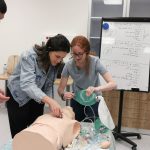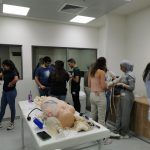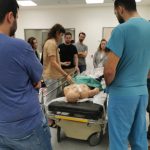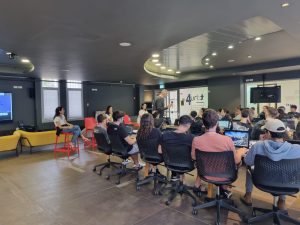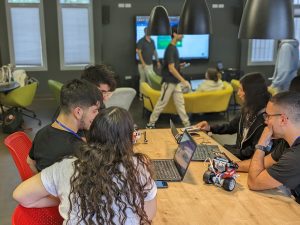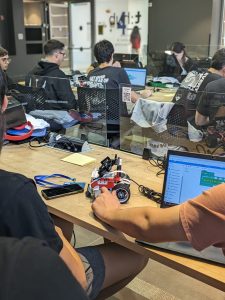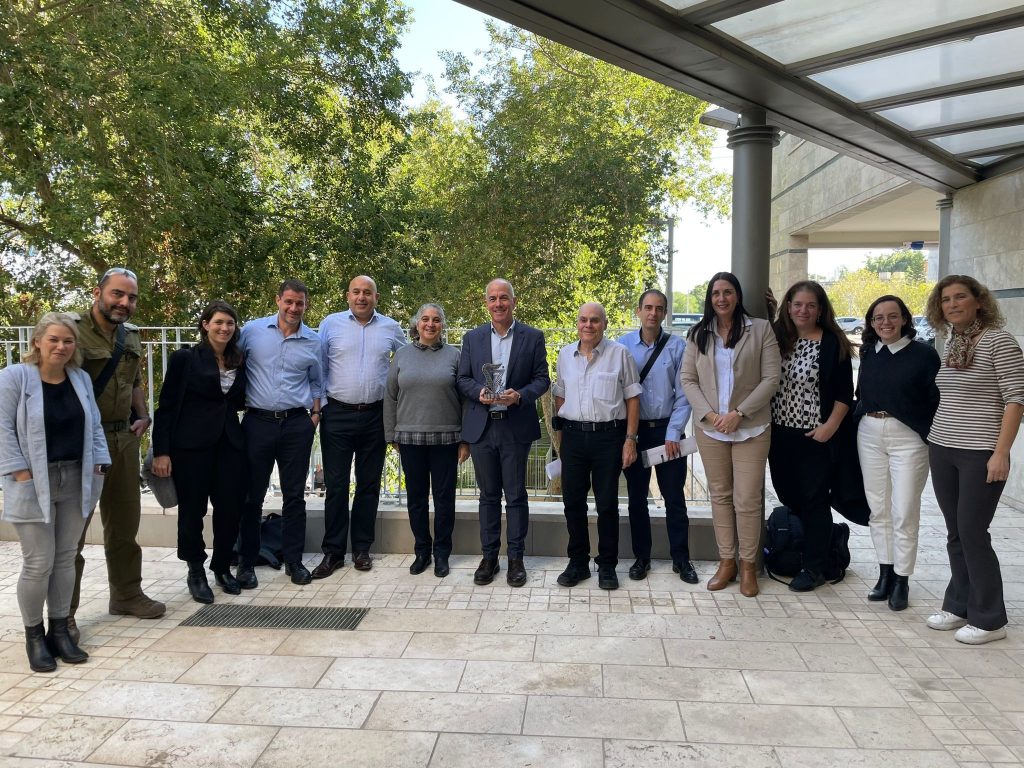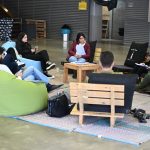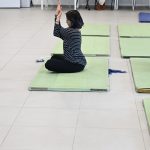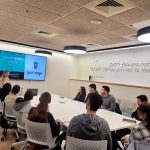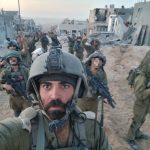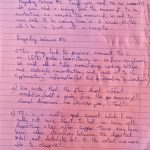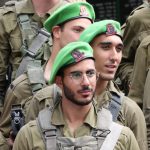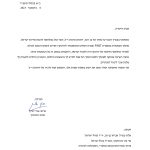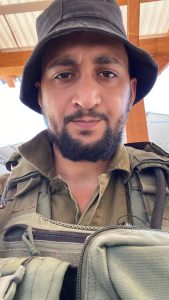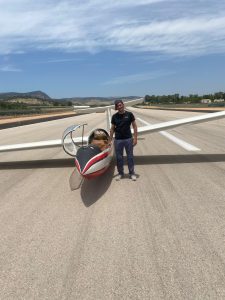Naor Iluz, a student in the Faculty of Aeronautics and Space Engineering at the Technion, was injured in the fighting in Gaza, faces the reconstruction process with optimism and dreams of a thriving space industry in the Negev
Thousands of soldiers have been injured since Shabbat in October, including students at the Technion. One of them, Naor Iluz, a student at the Faculty of Aeronautics and Space Engineering, was born in the center of the country and grew up in Mitzpe Ramon – “I spent my entire childhood there. I was a naughty boy. In middle school I attended an ultra-orthodox school that I now know operated without a license, and I really did not get a good educational foundation.” In high school he studied at the ‘Or Etzion’ high school yeshiva and two years at a military boarding school. “In the 10th grade, I was transferred to the ‘Aspiring’ group, where they studied for 3 units in mathematics. I got really upset and decided that I would just sit in on a 5-unit class. They tried to get me out. Called the manager. They even caught me copying on the first test, but they gave me a chance and on the second test, I scored the highest. In the twelfth grade, I completed physics at an external school, and thanks to the investment in the last two years of high school, today I am studying at the Technion, in the Faculty of Aeronautics and Space Engineering.”
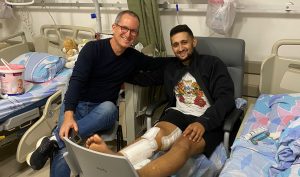
Naor Iluz with Prof. Tal Shima, Dean of the Faculty of Aeronautics and Space at the hospital
Fast forward to the War of the Iron Swords. Iluz, who served previously as a combat medic in the Engineering Corps, was drafted into the reserves by Order 8 as a medic in the patrol division of Auxiliary Company 198. On the morning of November 8, a month and a day after the Hamas attack on Israel began, a surprise IDF raid was launched on outpost 17 of Hamas. The raid, which was based on intelligence information that included tunnels and dozens of Hamas operatives in the target area, combined attacks from the air, engineering tools, tanks and several infantry battalions and other forces.
“The auxiliary gained confidence in the field during many days of fighting,” says Iluz, “and that’s why we got the right to lead the foot forces in this raid. At around 9:45, we arrived at the first structure and cleared it to cover a central axis in that location.”
The building had three floors. Iluz’s unit was placed on the third floor and another unit on the second floor. The stay there was planned to be short, but every plan is subject to change.
In a short time, A., one of the soldiers, was injured, and Iluz, the medical authority in the field, ordered him to be moved to an inner room and joined him. At 10:10, a long burst of gunfire was heard from inside the house and one of the soldiers shouted that he recognized a terrorist with an RPG. Two minutes later, shooting began at the soldier guarding the entrance to the building. The commanders made a situation assessment and it was decided that Iluz’s department would launch a counterattack on the terrorists’ house.
“Since A. was still dizzy and unbalanced, it was decided that only he and I would stay on the third floor in the same inner room. The platoon went to attack the house, the terrorist was waiting for them in the staircase and threw grenades at them. The first one did not explode but the second one did and several soldiers were injured to varying degrees. They were concentrated in a nearby warehouse.”
Naor in the reserve service
In the meantime, the first building was also hit by an RPG, and the entire floor where Iluz and A were staying was surrounded by smoke. “I heard the shouts from the building next door and I hoped they weren’t injured, but 10 seconds later I heard shouts ‘Iluz, Iluz, there are wounded and the MP was also injured.” Iluz joined M., his close mate, and immediately shots began to be fired at them. “Lots of bullets hit us millimeters from our shoes and legs, and I tell him ‘we are being shot at.’ When I assessed that they were changing cartridges, I asked M. to give a shot and I entered the narrow alley between the two houses. M. gave a burst of fire and I ran close to the right wall of the alley, but immediately a bundle of Kalashnikovs was fired at me.” One of the bullets hit Iluz’s shoulder and many shrapnel flew in front of him from the block wall next to him. Two other bullets were aimed at him and stopped – one in the vest and the other in the grenade that was in the pouch. “When I got to the door of the warehouse where the wounded were, I grabbed another bundle of Kalashnikovs.” One of the bullets entered the right side of the right thigh, breaking the bone and tearing the femoral artery and the main vein in the thigh. Everything happened in slow motion.
Iluz opened his emergency bag and tried to place a tourniquet on himself, without success. “I called A.M. and he put the blocker on me. While doing so, I look at the condition of the wounded and see to my left the MP sitting quietly with a broken leg from shrapnel from the grenade, see T shirtless at the end of the warehouse smoking a cigarette, look to the right and see C. with a sullen look and bleeding in the armpit area. At this point I realize that I am the worst injured and that I need a moment to take care of myself. A.M. Another tourniquet is placed on me. I lost a lot of blood and my consciousness was on and off. I said no, took my medic’s scissors from the vest and tore off my uniform and saw more bleeding, then stripped the rest of the wound.”
And all the while the fighting continues, the support covers the wounded and another wounded man joins his comrades in the warehouse – a wounded man who was shot in the hand. “Every 20 seconds someone else shakes me and shouts at me so that I continue to remain conscious, and everyone looks at me helplessly, after all, I’m the only medic here – and the most seriously injured.”
In the end, Iluz was laid on a stretcher and turned under fire to one of the tanks that arrived on the scene. The back corridor of the tank was opened, but the stretcher was too big and he was carried through it. ” At that moment, the most difficult psychological war of my life began. Excruciating pain, weak on the verge of losing consciousness, naked and frozen. I felt like a sardine in a can. I asked the tanker to bring me water and turn on the air conditioner so that it would be easier for me to breathe. To keep myself awake, I sang Eyal Golan’s ‘We went for a walk, we picked an anemone’ and ‘Buy you a diamond’. I repeated over and over the names of my nuclear family, including the dogs. Just stay awake.”
Dreaming of establishing a space industry in the Negev
About an hour after the incident, the tank arrived at a safe area where it connected with an Eitan (a new IDF APC) and where he met a paramedic for the first time. “Out of strength, I grabbed him, shook him and screamed: ‘Ketamine, Ketamine, Ketamine!’ And why does it take him so long to open a vein for me? But in retrospect I know that I quickly received the anesthetic. I don’t know what dose, but I started having hallucinations of life. I saw long corridors, destroyed houses of Gaza that shrunk and turned into a virtual game on the computer, I saw a screen of smoke and then total darkness descended, and immediately after that the black became a condensed black – what I felt at that moment was like death.”
When they reached the border, Iluz was transferred to a military ambulance. “I woke up from the sunlight and saw an Israeli electricity pole, which gave me a lot of hope for life because I knew I was close to a hospital.” He remembers how the mobile door opened when they arrived at Barzilai Hospital. “They put me in an operating room and I saw dozens of people in gowns and I shouted to them ‘put me to sleep put me to sleep’. And that’s what they did.”
That evening Iluz woke up at seven o’clock, and to this day he has a hard time digesting what happened to him in Gaza. Since the interview with him, he has moved from the Barzilai hospital to the rehabilitation department in Tel Hashomer. He maintains optimism and believes that he was not injured for nothing, because “it is a privilege.” We were called to protect the house.” The future is clear to him, at least at the national level: “My dream is to establish an aviation and space industry in the Negev, so that the State of Israel will not be dependent on external factors and that Israel’s air superiority in the Middle East will be maintained.”
.



